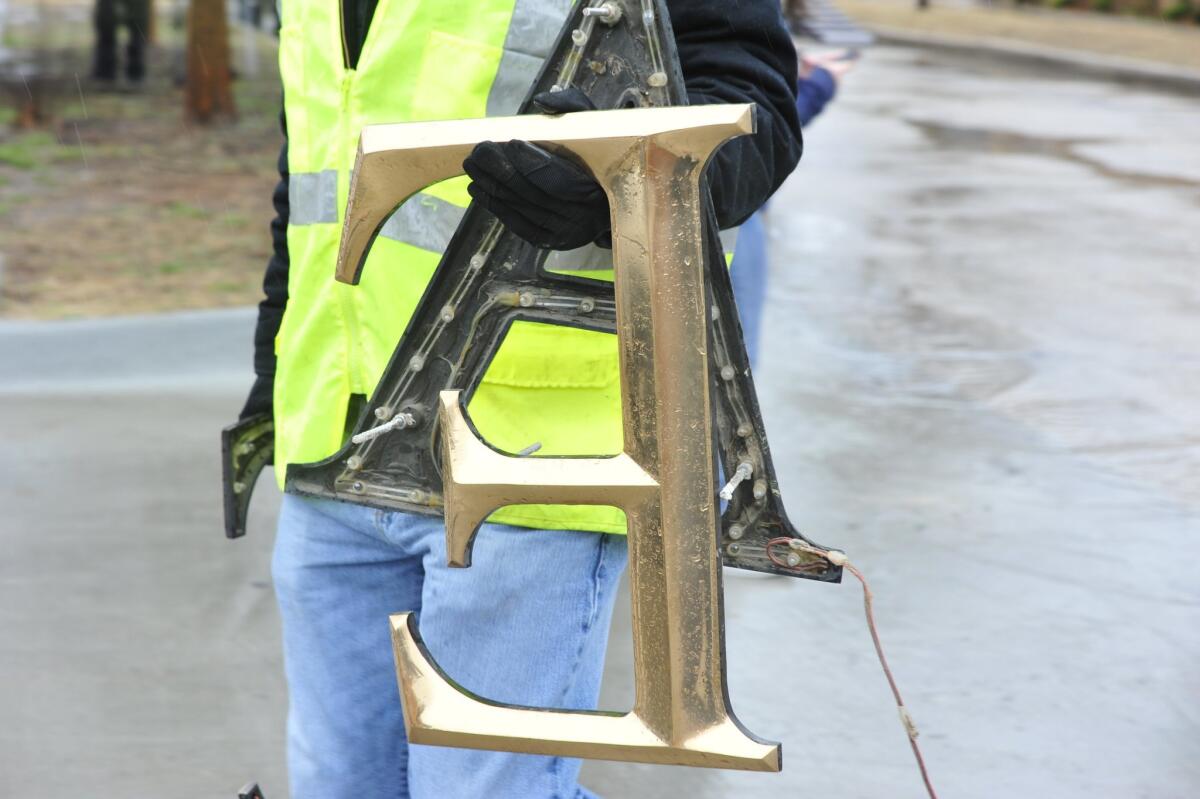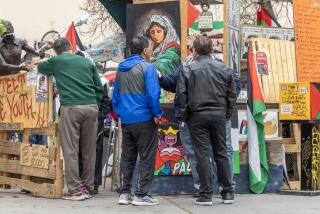Black Sigma Alpha Epsilon members, alumni describe a ‘band of brothers’

Twelve years ago, as an active alumnus of the Sigma Alpha Epsilon fraternity, Joseph Lee gave a speech in Long Beach to the group’s leadership trust that turned heads.
Lee, an African American who is now 59, told his longtime frat brothers that SAE needed to change with the times and seek out more minorities to reflect an always-morphing American collegiate culture.
He talked about the group’s credo of being “The True Gentleman.” But he said that gentleman now came in all colors and sizes.
“I told them that the country was changing and if they wanted their fraternity to continue to be relevant, they had to look like the rest of us out there,” he said. “I said there’s got to be room for another piece of pie, not just the piece that looks like you and talks like you and acts like you.”
At the time, the fraternity had few black members, but that has changed, says Lee, who works as a business consultant in Las Vegas. He said SAE membership took his warning to heart and has since opened its membership umbrella far and wide.
That’s why Lee was so shocked at the news that an SAE chapter at the University of Oklahoma this week had been permanently banned from campus after members were videotaped performing a racist chant that included allusions to lynching.
“There have been incidences of trouble with the fraternity since I left my active role — and usually I’d say to myself, ehhh, OK,” said Lee, who stepped down from national organizing work a decade ago. “But this was different. This one hit me in my heart. I’m a veteran and I’m an American and I thought, something has got to be done about this.”
Lee is one of several African American SAE members past and present who spoke publicly about the controversy that has sullied the reputation of an organization started in the antebellum South that this month celebrated the 159th anniversary of its founding.
Some of them are the presidents of their chapters. But all of them have one thing in common: They say the racist comments made in Oklahoma do not reflect their experiences with the Greek organization.
“It was distasteful, obviously,” said Colin Otubu, 20, president of the SAE chapter at Kent State University in Ohio. “I just cannot imagine my former brothers in Oklahoma — and I did call them brothers — making a chant like that, considering how diverse this organization is as a whole.”
Otubu, whose twin brother, Kevin, is also an SAE member, said the chapter’s 50 brothers include about a dozen African Americans, as well as a contingent of Asians, Latinos and Indian Americans.
He says he has attended leadership councils for the fraternity and has black friends in other chapters. Never, he said, has he heard of any racist behavior. “To call our group racist is just extremely ridiculous,” said Otubu, who wants to attend law school. “This fraternity has made me who I am today.”
Timothy McDuffie remembers joining USC’s Sigma Alpha Epsilon chapter in 1969.
McDuffie, then 19, described a bit of “initial fear” among some of his fraternity brothers, but insists it wasn’t based on racism. Their fears were political, he said, citing the 1968 Olympics’ Black Power salute, when two African American athletes raised their black-gloved fists in the sky during the medal ceremony.
“So some wondered, ‘If this person is coming in, do they have an agenda?’” McDuffie said. “But they got over that. Racial bigotry and racism itself wasn’t an issue among us. We were just fraternity brothers.”
McDuffie, who left USC during his sophomore year to become a missionary, recalls partying with his fellow fraternity members, calling them a “band of brothers.”
Mikal Sykes is president of his SAE chapter at Delta State University in Mississippi, said he’s never been made to feel out of place or socially uncomfortable.
“I was just elected chapter president this spring and, obviously, race has never been a factor for us here,” Sykes said. His chapter has 42 members, three of them black. “We’re a small university in the Mississippi Delt,a and we don’t get a lot of diversity here. But we get along.”
A Mississippi native, the 20-year-old Sykes has a double major in social science and history and one day wants to be a teacher and education administrator. He says that while his school is on spring break, he has heard from his brothers via social media.
“Everybody is upset about this,” he said. “Our chapter recruits good guys, that’s it. They may be gay or white or black. The one requirement is that they have to be good guys.”
So what should be the fate of the brothers at the University of Oklahoma? They shouldn’t be expelled just for their racist views, he said.
“I study history and I’ve read a lot about race relations in our country,” Sykes said. “We’re only a generation removed from real segregation in America, from all that terrible stuff. Strom Thurmond, the U.S. senator from South Carolina, was a lifelong segregationist and he just died in [2003], in my lifetime. It’s just recent history when blacks were expected to be second-class citizens.”
Ernest Veasley, a sophomore engineering student at the University of Cincinnati, knows he’s among just three African Americans of the SAE chapter’s 130 brothers.
But he doesn’t feel like any minority. “I see it as an achievement just to be part of this small group of select men,” he said.
This semester, Veasley helped found a diversity committee among the university’s 10 fraternities. Six of the 10 members are from SAE, he said.
“These are all guys I’ve admired — leaders on campus,” he said. “I think joining SAE was one of the best decisions I have made while at this university. I was looking for a home away from home. And I found it.”
Back in 1973, Lee was the first African American initiated into his SAE chapter at Franklin College in Indiana. He was a standout high school football player in Newport, R.I., when he received a recruitment letter from the SAE chapter.
He put on a suit and flew to Indiana, told he would meet a man at the airport carrying a placard with his name. Once there, he saw the sign and the man, but there was no recognition.
“I went up and asked him, ‘Are you looking for someone?’ And he said, ‘Yes, a guy named Joe Lee.’”
“And I told him, ‘Well, Joe Lee is standing right here in front of you.’”
The man was shocked. “They had no clue I was black,” Lee recalled.
Lee attended Franklin College and moved in with his new frat brothers. “Racially, these were not the best of times,” he said. “The KKK grand dragon lived just down the street. But I never felt it at the fraternity.”
After his Long Beach speech, Lee said, he became one of a few blacks in SAE national leadership, serving as a regional vice president and as a faculty member of the fraternity’s leadership school, until he stepped down to raise his three sons and concentrate on his business.
But each year, he saw more and more minority brothers in the ranks of SAE pledges. “I’m blown away by the number,” he said. “From time to time, I’ll go online and look at the different chapters. And the composites I see have much more color in them than I ever would have dreamed.”
Lee says the roots of racism go far beyond just one fraternity.
“How can you expect an 18-year-old to think he’s going to offend someone just by using the N-word, when he can walk down the street and hear that word in use every day? They’re just kids,” he said. “But in the end, we’re not going to change the racial sensitivity of this country overnight.”
Twitter: @jglionna and @ParviniParlance
Glionna reported from Las Vegas and Parvini from Los Angeles.
More to Read
Sign up for Essential California
The most important California stories and recommendations in your inbox every morning.
You may occasionally receive promotional content from the Los Angeles Times.












